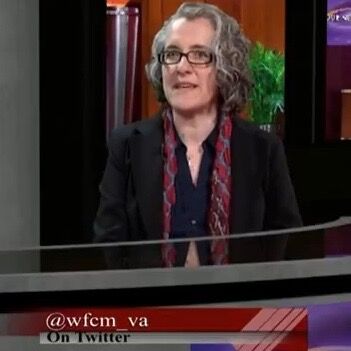Western Fairfax Christian Ministries
(May 30, 2018) Host Catherine read sits down with Rebecca Kolowe, Executive Director of Western Fairfax Christian Ministries (WFCM). Formed in 1987, WFCM is a coalition of 12 area churches from Centerville and Chantilly that provide life-essential services to reduce hunger and the risk of homelessness amongst the most vulnerable residents of western Fairfax County. For the past 29 years, WFCM has been a critical safety net for those struggling to make ends meet.
WFCM hosts the largest client choice food pantry in the community. This means that residents can come and “shop” at the pantry for items that meet their needs. For example, instead of clients being given a bag of food when they show up, they can actually browse the pantry to find what would best meet the needs for their family. This helps reduce waste, and can accommodate for food allergies. Additionally, during the holidays the organization supports a holiday food program to ensure that everyone enjoys food during the Thanksgiving and Christmas. They have also put together a wonderful turn-key “do it yourself kit” for food drives, so individual organizations like schools, scouts or swim clubs could put together a food drive to help support the pantry. This is especially helpful for the summer months, when children are not in school and families need extra support to help cover meals.
Emergency financial assistance is another key aspect of the WFCM program. If a family finds themselves unable to meet a utility bill or make a mortgage payment, there are resources that can be used to help them meet their obligations. The organization also runs the “Pathways to Success” program, where they work individually with 12-15 families at a time to provide a class in financial counseling, along with individual meetings, to help clients learn the skills they need to become financially independent. Upon graduation from the program, each family receives a $5,000 scholarship to be used to pay off debts and/or be put into a savings account. This helps to put families on a path to a brighter future. The goal is to equip each family with the skills needed to sustain their success.

This past spring WFCM had the joy of welcoming an intern to their organization, and with the extra help and energy they were able to launch two new programs for their clients. In partnership with Computer Core, they established a resume-writing seminar, which was well attended and received positive feedback. They are also partnering with the Centerville Presbyterian Church to support the community garden program called “Seeds of Hope”. Pantry clients are encouraged to use the plots at the church to grow their own food, which they can then take home. In conjunction with the community garden program, WFCM encourages community members to donate their excess vegetables from their own gardens to the pantry, or to simply “add a row” of extra vegetables that they could then donate. Looking towards the horizon, Kolowe hopes to bring more new and creative programs to life that will help lift up her clients, as WFCM continues to grow and evolve.